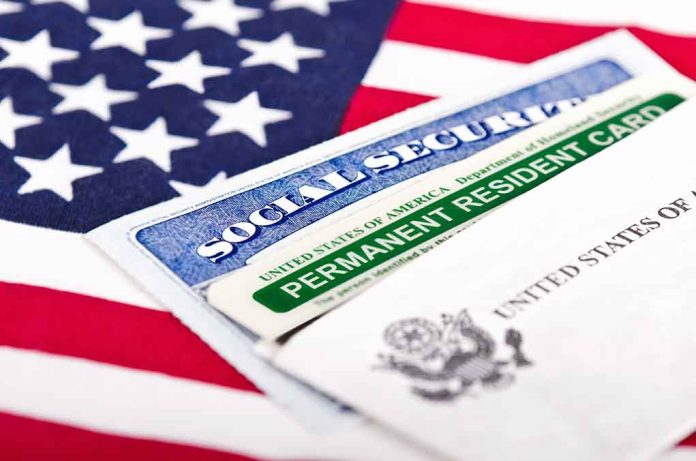
President Trump’s executive order to end birthright citizenship for children of certain migrants in the U.S. has garnered more support than opposition, according to a new poll.
Top Takeaways
- 45% of Americans support Trump’s rollback of birthright citizenship, while 37% oppose it.
- The executive order affects children born to mothers unlawfully present or on temporary visas.
- Support is highest among Republicans (69%) and in the Southern region (51%).
- President Trump’s job approval rating stands at a net positive of +8%.
- 56% of Americans support a pathway to citizenship for undocumented migrants.
Trump’s Executive Order on Birthright Citizenship
On January 20, 2025, President Donald Trump issued an executive order aimed at redefining the parameters of birthright citizenship in the United States. The order, titled “Protecting the Meaning and Value of American Citizenship,” emphasizes citizenship as a “profound gift” and seeks to limit its automatic bestowal on children born to non-citizen parents on American soil.
The order specifically targets two categories of individuals: those born to mothers unlawfully present in the U.S., and those born to mothers with lawful but temporary status, provided the father is not a U.S. citizen or lawful permanent resident at the time of birth. This move has ignited a fierce debate on the interpretation of the 14th Amendment and the extent of presidential power.
Public Opinion Divided
A recent poll conducted by Emerson College reveals a nation split on the issue, with a slight edge in favor of the President’s action. The survey of 1,000 registered voters found that 45% support Trump’s efforts to roll back birthright citizenship, while 37% oppose it, and 19% remain neutral or undecided.
The poll, conducted from January 27 to 28, showcases stark partisan divides. Republican support for the measure is robust at 69%, while Democratic support stands at 25%. Independents fall in between, with 38% backing the order. Regionally, the South shows the strongest support at 51%.
Americans support Trump’s birthright citizenship rollback, new poll reveals https://t.co/pzmcrH1t5e
— Independent US (@IndyUSA) January 30, 2025
Broader Immigration Sentiments
The survey also gauged public opinion on other immigration-related issues. Notably, a majority of Americans (56%) support a pathway to citizenship for undocumented migrants, indicating a nuanced view of immigration policy among the electorate. However, the nation remains divided on allowing Immigration and Customs Enforcement (ICE) to conduct searches in schools and churches, with 44% against and 41% in favor.
Among Latino respondents, the birthright citizenship issue presents a complex picture. While they show the highest opposition at 42%, a significant 39% express support for the measure, highlighting the diverse perspectives within this demographic.
Trump’s Post-Inauguration Approval
The poll also sheds light on President Trump’s overall standing with the public following his inauguration. His job approval rating stands at a net positive of +8%, with 49% approving and 41% disapproving of his performance. This approval rating closely mirrors his share of national support in the 2024 election.
“President Trump’s 49% job approval rating closely reflects his share of national support in the 2024 election, and his 41% disapproval is the lowest it has been in Emerson national polls dating back to his first term,” said Spencer Kimball, executive director of Emerson College Polling.
The data suggests a slight uptick in national optimism, with 52% of Americans believing the country is on the right track. This positive sentiment appears to be influencing perceptions of the President’s policy initiatives, including the controversial birthright citizenship order.
Looking Ahead
As the executive order moves forward, it faces various legal challenges and continued public debate. The administration has directed relevant departments and agencies to issue public guidance on the order’s implementation within 30 days. Meanwhile, the nation watches closely to see how this significant shift in immigration policy will unfold in the courts and impact American society.



















